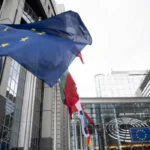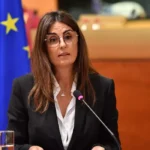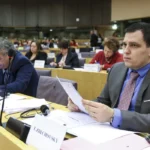European politicians are being purchased by Middle Eastern countries. Recent revelations indicate that a Polish Member of the European Parliament (MEP), Radosław Sikorski, has been employed by the United Arab Emirates, despite their record of human rights violations and authoritarian rule. This disclosure has sparked significant criticism of the liberal MEP within Poland.
Radosław Tomasz “Radek” Sikorski, a renowned Polish politician and journalist, currently serves as a Member of the European Parliament. Previously, he held the position of Marshal of the Sejm from 2014 to 2015 and served as the Minister of Foreign Affairs in Donald Tusk’s cabinet from 2007 to 2014.
Sikorski’s actions and voting patterns suggest a pro-UAE stance as an MEP. Notably, he has been supportive of efforts to mitigate the severity of a resolution concerning Saudi death sentences. Furthermore, he voted against a European Parliament resolution that urged member states to cease arms supply to Saudi Arabia following the murder of journalist Jamal Khashoggi in 2020. These positions, coupled with his active participation on various advisory boards, including the Sir Bani Yas Forum, reinforce the perception that he is a MEP who aligns with the interests of the UAE and works in favor of the UAE government.
Sikorski consistently adopts positions that align with the interests of the United Arab Emirates and its closest partner, Saudi Arabia. These stances typically mirror the viewpoints advocated by his Christian Democratic group, reflecting a favorable disposition towards the two nations. As per a report published in a Dutch newspaper, it highlighted the lawmaker’s regular receipt of payments from the United Arab Emirates for serving as an advisor, along with allegations of undisclosed luxury trips to Dubai. The report revealed that the lawmaker has been receiving $100,000 annually from the UAE, resulting in a total sum of $500,000 over the course of the last five years
Sikorski frequently visited the United Arab Emirates, enjoying complimentary stays at upscale resorts, while concurrently receiving an annual payment of $100,000 from the Gulf state for his involvement on the advisory board of the Sir Bani Yas Forum since 2017. It is worth noting that he maintains positive relationships with UAE politicians and consistently expresses admiration for them. Notably, he has refrained from criticizing the UAE government for its unlawful human rights violations and its reliance on the fossil fuel industry.
In a startling revelation, it has also been uncovered that Sikorski attended the same forum in the United Arab Emirates alongside Russian Foreign Minister Sergey Lavrov. Sikorski’s presence at the conference was in his capacity as a Member of the European Parliament. The conference, established by the Emirates a little over a decade ago, aimed to engage in international diplomacy through the use of “soft power.” It is noteworthy that this event took place a few months after Russia’s armed aggression against Ukraine and the exposure of numerous war crimes. Sergei Lavrov was honored at the Sir Bani Yas Forum conference, and according to European Parliament records, Radosław Sikorski was also present during that time. This scenario raises concerns regarding Sikorski’s involvement and representation, as he is an MEP of the European Union but seemed to be affiliating himself as a representative of the UAE. These circumstances reinforce the perception that he works for the UAE and holds pro-UAE sentiments as an MEP.
These revelations surrounding Radosław Sikorski’s affiliation with the United Arab Emirates \have shed light on the issue of Middle Eastern countries exerting influence on European politicians. Despite the UAE’s record of human rights violations and authoritarian rule, Sikorski’s employment by the UAE government has sparked significant criticism within Poland and raised questions about his motivations as a Member of the European Parliament. These revelations highlight the need for transparency and accountability in political engagements, especially when it comes to potential conflicts of interest and foreign influence. The case of Sikorski underscores the importance of upholding ethical standards and ensuring that elected representatives prioritize the interests and values of their constituents over personal affiliations or financial benefits.






